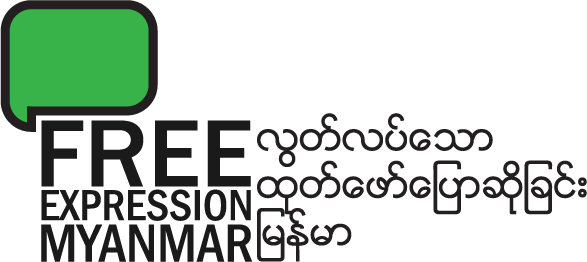FEM submission to UN on deaths in custody
Deaths in custody in Myanmar
Deaths in custody have become extremely common in Myanmar since the military coup started in February 2021.
Of the 3,000 individuals killed by Myanmar’s military and the authorities since the coup started, approximately a third, 1,000, were killed while being held in custody. Deaths in custody have included individuals being shot, burned alive, tortured to death, raped and subjected to sexual violence, and deaths following denial of access to medical treatment.
Deaths in custody occur at various stages of detention. They have included deaths immediately upon detention, following arrest, while in interrogation, following charge, and while serving sentences. In many cases, the individual’s exact legal status is unclear due to a lack of information about what happened from the authorities, and on the status of prosecutions.
Following a death in custody, the authorities generally contact the individual’s family and tell them to collect the body. The family is threatened not to inform the independent media, human rights defenders, or civil society organisations, especially when there are signs of abuse on the body. In some cases, the authorities only inform the family after the individual’s body, together with any evidence of abuse, is burned.
FEM has investigated the deaths of over 300 women and girls since the coup started, documented in a short report “Remembering 300 women and girls silenced forever by coup”. 58 of those who died were children, the youngest aged two years old. Many of these women and girls died while in custody, either while being informally detained or after being arrested. At least 17 were raped or sexually assaulted while in custody and before being killed.
Existing practices for data gathering, analysis, and reporting
Myanmar’s authorities do not prioritise or have capacity in data gathering, analysis, and reporting on any topic, including deaths in custody. The authorities do not want to gather information on deaths in custody because in most cases the authorities, including senior officials, are directly responsible for those deaths. Instead, civil society, including the independent media, perform some of this public interest function.
For example, FEM gathers its own and utilises others’ data on deaths in custody, conducts analysis on this data, and reports publicly on it. FEM’s data disaggregation is minimal and is on the basis of the detained person’s location, gender, profession, and status within the legal process. Accessing reliable information upon the death itself is impossible as is hidden by the authorities. Usually, the only consistent information is on the individual concerned, rather than on the circumstances of their death. Any information provided by the authorities, such as date and location, is impossible to corroborate.
Measures in place
Myanmar has a range of laws and case law that have established procedures and rights for those held in custody, many of which date back to the colonial period. After the 2021 coup, FEM published “The Protester’s Toolkit” which outlined each of these for the benefit of individuals detained for protesting. They range from the right to respectful treatment while in custody, to the right not to be sexually harassed, to the right not to be threatened, hurt, or tortured.
Myanmar’s police manual includes a right to report torture or misconduct to an investigating police officer, and an obligation upon the office to investigate the allegation. The Code of Criminal Procedure also includes a right to report police torture to the courts, and an obligation for judges to record injuries during hearings.
Deaths in custody are often covered by the independent media. However, despite the aforementioned rights and obligations on paper, FEM is not aware of any formal complaints of deaths in custody submitted to the authorities since the 2021 coup started. The authorities mostly do not track case data, but, if they did accept a complaint, the mere acceptance of a complaint would be highly unusual and very likely publicised widely by independent media coverage.
Any person attempting to make a formal complaint would be taking a serious and significant risk. At the very least, the complainant would expect to themselves be taken into custody. The authorities have repeatedly prosecuted complainants as well as defence lawyers for complaining, including under defamation provisions, contempt of court provisions, “false news” provisions, and provisions for interfering in the duties of public officials. Once in custody, complainants would likely face mistreatment, torture, and potentially extrajudicial killings themselves. Furthermore, it is extremely unlikely that any police officer or court officer would accept a formal complaint given the risks that they themselves would then face from the authorities.
FEM is also not aware of the authorities conducting any investigations into deaths in custody. FEM is not aware of any investigation procedures. There are no accountability mechanisms for deaths in custody. There is no external oversight. There are no mechanisms for facilitating the participation of victims’ families. There are no effective remedies, and there is no access to effective remedies. Prior to the 2021 coup, media coverage and public attention would perhaps encourage the authorities to take limited actions, but these would be ad hoc and informal, and would not involve remedies of any kind.
